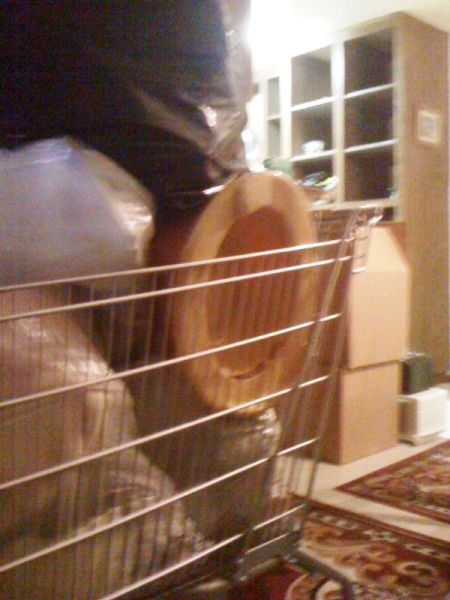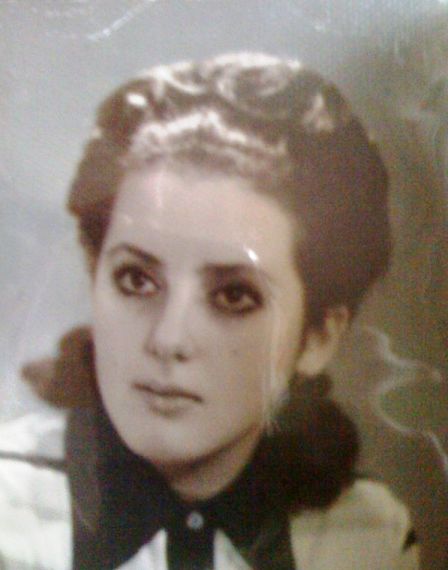
The hardest part of packing up my in-law’s apartment is “the stuff.” We always hear that “stuff” — material objects — is meaningless. Yesterday, on Oprah, there was discussion about women who give up the trappings of the real world to become nuns. They were happy to trade in their “stuff” for a meaningful relationship with Jesus.
I wish I could tell you that my “stuff” means nothing, but I’m not a nun, or a Buddhist. My “stuff” speaks to me. They are the props to the stories of my life. I have saved baseball cards, stamps, matchboxes from my honeymoon, sentimental objects that would have no meaning to you at all, but are more important to me than my $30,000 car. I realize that the energy of this stuff is really in my head, my memories, and that these objects are inherently meaningless on their own, but life would be a lesser place if we didn’t create myths about our “stuff,” from national flags to Bibles to the old toys in Toy Story.

I made three piles of Vartan and Fanya’s stuff — to throw out, to give to Goodwill, and to take home. But no one left behind a directory, or a glossary, telling me which object was important. How is anyone supposed to know the stories behind the “stuff?” I know enough from watching Antique Roadshow on PBS to take the crystal vase home, but what about the cheapo Made-in-Japan glass bird sitting on the nightstand? Was it a gift? A shared moment between husband and wife? A impulse buy during a vacation? Did it have any specific meaning? Why was it sitting so close to the bed? Was it the object itself that was special or the image of the bird flying? Was it an expression of Fanya’s need to escape something or somewhere? To recapture youth? Was in Vartan’s love for birds? A childhood memory of the birds of Russia?
I just don’t know.  I put the bird in the pile for Goodwill. Perhaps someone new, a young woman perhaps, shopping in Goodwill with her friends, will find meaning in it, buy it, and place it on her nightstand. It will then be her “stuff.”

I found a lot of photos.   Here’s one of Sophia from when she was in school. For some reason, it made me chuckle.

I found some of Vartan’s old medical equipment.

By the second day, I was becoming more ruthless in what I was giving away.  I decided that it was better that someone uses the items rather than it sitting in our garage.
I donated most of Vartan’s books.  I kept his copy of War and Peace. It was a gift from one of his patients. Sophia told me that doctors in the Soviet Union didn’t make any more money than day laborers, so many took bribes. Vartan refused to take bribes, but he did accept books as gifts.

Inside the book was this inscription.

Sophia translated it for me.
Dear Doctor Vartan Ambartzumovich,
Thank you for so expertly performing surgery on our beloved mother. We hope that thanks to your light hand, our mom’s life shall be extended. We’re wishing you solid health and much success in your noble daily work.
Igor Matyushin, Sergey Matyushin, Tatyana Matyushina.
City of Odessa. 06.02.1976
Now, this was good “stuff” to take home.














